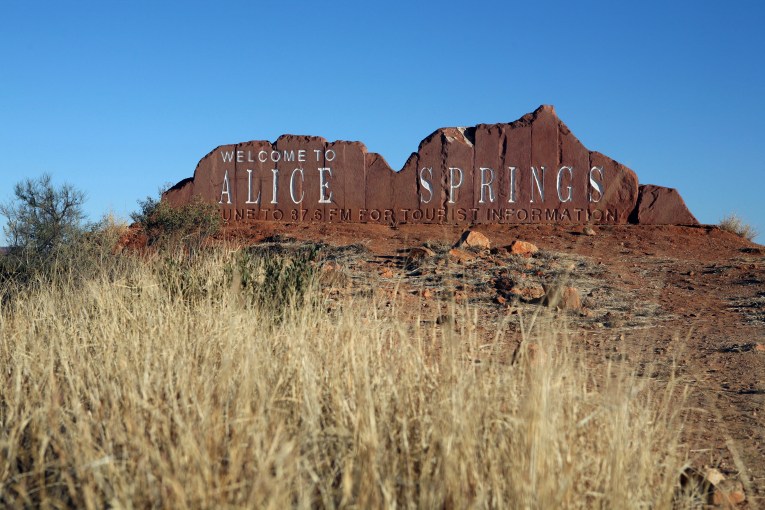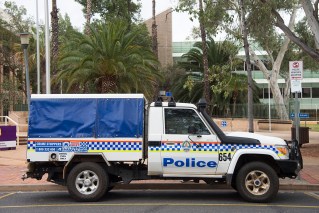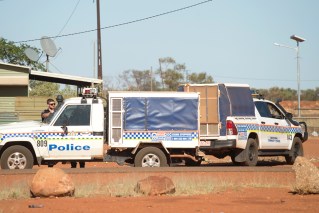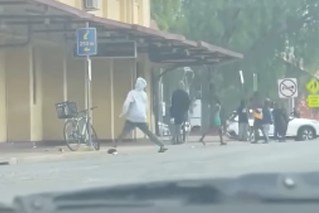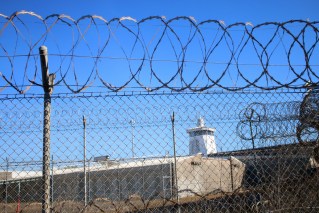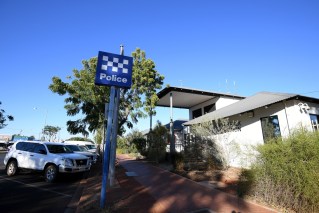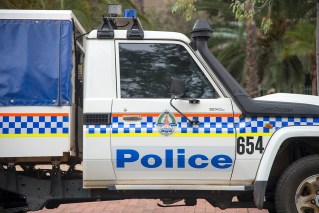NT cop’s fatal shot not necessary, jury told
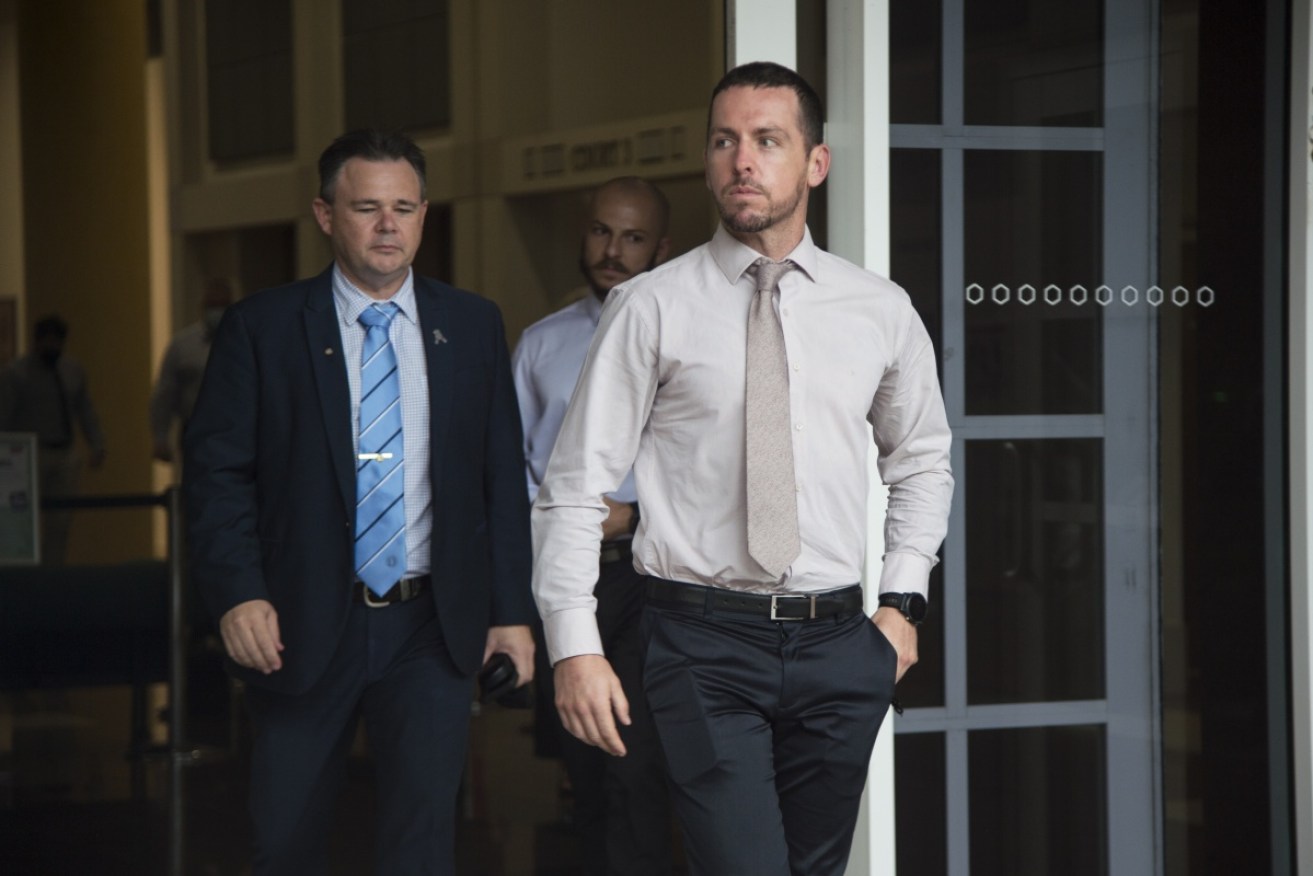
NT police officer Zachary Rolfe was acquitted of shooting dead Kumanjayi Walker, who was armed with scissors. Photo: AAP
A murder-accused policeman’s fatal second shot into an Aboriginal teenager was not reasonable or necessary, an expert witness has told a Darwin jury.
Detective Senior Sergeant Andrew Barram says the scissors Kumanjayi Walker, 19, was armed with were a “very low threat” with another police officer pinning him down.
Constable Zachary Rolfe, 30, has pleaded not guilty to murdering Mr Walker after the teen stabbed him in the shoulder with the scissors on November 9, 2019.
Rolfe fired three shots into Mr Walker as he resisted arrest in a room at his grandmother’s home in Yuendumu, 290km northwest of Alice Springs.
The teen died after the second shot ripped through his spleen, lung, liver and a kidney.
Expert witness Det Sen Sgt Barram reviewed Rolfe’s body-worn camera video and says the constable’s second and third shots were not reasonable or necessary.
Rolfe fired them after Mr Walker had fallen to the ground with another officer, Sergeant Adam Eberl, who was then a constable, on top of him.
“Things had changed substantially from when the first shot was fired,” Det Sen Sgt Barram told the Northern Territory Supreme Court on Tuesday.
“They had gone from standing in a fairly equal fight … to Mr Walker being shot in the back, which would affect a person in some way, and being pinned on the ground with his right arm under him.
“His ability to deploy that knife (sic) being limited by his lack of mobility.”
The former officer-in-charge of the NT Police operational safety section said Rolfe’s first shot was justified “because he was confronted at close range with an edged weapon and actually stabbed with it in the shoulder”.
“It would have been reasonable to believe his partner was also in danger at that point.”
Det Sen Sgt Barram said Rolfe could have used “defensive tactics to help take control of Mr Walker on the ground” instead of firing shots two and three.
“As far as the fight was concerned or the arrest of Mr Walker, the firing of those two shots made no difference to the tactical situation,” he said.
“The scissors were a very low threat at that point. We are taught to be accountable for every shot we fire and the need to assess and reassess after every shot. I believe there were other options available.”
He said the final two shots “were unnecessary and it does not appear a threat assessment of the situation was made by Mr Rolfe”.
Rolfe and three other officers were sent to the remote Indigenous community to assist local officers with general policing duties.
They were also ordered to arrest Mr Walker at 5.30 am on November 10 when he was likely to be sleeping and easily taken into custody.
Instead, they found the teen about 15 minutes after leaving the local police station where the officer-in-charge Sergeant Julie Frost has said she handed the men a printed page outlining the arrest plan.
Rolfe walked into a dark room and shot Mr Walker about a minute later. The second fatal shot ripped through the teen’s spleen, lung, liver and a kidney.
The Crown says Rolfe and his team were “intent” on finding Mr Walker after watching a video of him violently threatening two other policemen with an axe on November 6.
It has conceded the first shot, which was fired while Mr Walker was standing and wrestling with Sgt Eberl, was justified.
But it says the second and third shots, which are the subject of the murder charge, went “too far”.
Det Sen Sgt Barram remains a serving member of the NT police force and the acting-superintendent of the drug and organised crime division.
The trial continues.
– AAP
